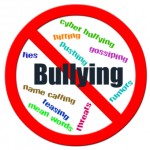 I remember watching my daughter and her friends interact on the playground when she was 2, 3 and 4 years old. Boys or girls, quiet or rambunctious, it didn’t matter; everyone was a possible new friend. Everyone had potential.
I remember watching my daughter and her friends interact on the playground when she was 2, 3 and 4 years old. Boys or girls, quiet or rambunctious, it didn’t matter; everyone was a possible new friend. Everyone had potential.
After she started school, a shift began to evolve that was so subtle, it could have been missed. It was a power shift, of sorts. When I subbed in the elementary schools during those years, I saw it almost everywhere, the divisions forming. The playground cliques. The pitting of one child against another – if you include her, I won’t play.
My daughter came home one day in third grade and told me that a friend had created a club during recess; my daughter was invited to join, but her best friend was not. When I asked her how she felt about it and how she handled it, she said, somewhat indignantly, “Well, I didn’t join, of course!” She then did the eye-roll, the non-verbal “you idiot,” and walked away.
I couldn’t have been more proud of her at that moment – eye-roll or not. I knew it was a small victory, an early one, but it was a start. Her friends’ mothers and I have been on a quest since the beginning of their friendships to mitigate, if not completely eliminate, the “mean girls” phenomenon that seems so endemic in our daughters’ lives.
Why are we like that? Why do we need to hurt, put down, insult, and otherwise belittle others to make ourselves feel good? I’m sure there are many, many answers and reasons to the broad societal issue of bullying, but with girls, there seems to be an additional impetus. As Mary Pipher, Ph.D., suggested in “Reviving Ophelia,” the adolescent years are when girls’ self-esteem nosedives.
I remember my mom telling me things like that when I was a child – a fringe kid, not one of the popular girls: “They’re just jealous, honey.” And I would think, jealous of what? The flaming red hair? The intelligence? Ooh. Yes. Those things are SO COOL. And I would roll my eyes at her and walk away. And yes, I do see the trend there.
As an adult, I get it. When girls lose their self-esteem, they DO become jealous – maybe of another girl’s things or looks, but also maybe simply because she hates herself. In my experience, girls who are insecure need the validation of others to cement their own self-worth, and often that validation comes at the expense of kids who don’t fit the standard definition of “normal.”
That’s where the other moms and I stepped in.
It started – we started – even as the girls were starting to mature, to find their voices, their interests, their strengths. If our daughter was disrespectful to a friend, or rude, or not playing fair, we sat her down and explained that good friends build each other up, they don’t tear them down. We helped them understand empathy – “How do you think you might feel if a friend said/did that to you? Do you think it could be hurtful?”
As situations occurred between our girls, we would coach them on how to understand other people’s feelings, how to understand their own, and how to work things through. We still do, sometimes. But now, for the most part, we let them work things out themselves, because they have the tools to do so without hurting each other. They know, at the end of the day, that meanness will not be tolerated.
Earlier in the year we worked with Ophelia’s Place, an educational/gathering place in Liverpool that focuses on positive body image and self-esteem, to create a kind of “We Rock!” party for our girls. They spent an afternoon doing crafts and activities around what they like about themselves and what’s special about their friends, and emerged even tighter than before.
There are so many more ways today for girls – kids – to hurt each other; I may not be able to give my daughter self-esteem, but I’m hoping, through these kinds of activities, that I can give her the tools to hang onto what she already has. Finding other moms who share that philosophy has made the battle much easier.
Our hope is to cement our girls’ self-esteem before the teen years can sabotage it. Will we be successful? I don’t know. What I do know is that if I don’t try, I will not forgive myself. I simply cannot accept that the pain I experienced in middle and high school at the hands of mean girls is a rite of passage. If we help our girls develop/retain their self-esteem, there’s a better chance they will be neither bully nor victim.
It’s never going to be as simple as the playground. But I still believe in the potential.
 Maggie Lamond Simone is a national award-winning columnist. Her books include“From Beer to Maternity” and “POSTED!” with essays in “P.S. What I Didn’t Say” and multiple “Chicken Soup for the Soul” editions. She teaches journalism at SUNY Oswego, Oswego, N.Y and blogs for The Huffington Post. The 51-year-old Simone is mother to a son, 14, and daughter, 12, whose puberty is directly in sync with her menopause.
Maggie Lamond Simone is a national award-winning columnist. Her books include“From Beer to Maternity” and “POSTED!” with essays in “P.S. What I Didn’t Say” and multiple “Chicken Soup for the Soul” editions. She teaches journalism at SUNY Oswego, Oswego, N.Y and blogs for The Huffington Post. The 51-year-old Simone is mother to a son, 14, and daughter, 12, whose puberty is directly in sync with her menopause.
